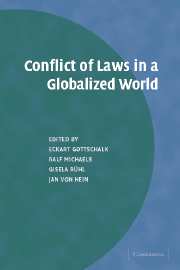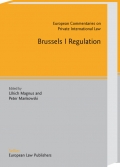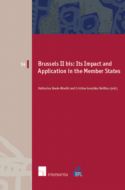A very interesting judgment was handed down in the High Court on 15th August 2007 in the case of Long Beach & Nguesso v Global Witness [2007] EWHC 180 (QB). Professor Jeremy Phillips at the IPKat blog has posted an excellent summary of the case. I have reproduced sections of his post here, and supplemented them with a little more detail on the private international law issues.
Nguesso, son of the President of the Congo, was also President and Director General of the marketing arm of Cotrade, the Congolese state-owned oil company. He owned Long Beach, a company registered in Anguilla. This application was brought by Nguesso and Long Beach against Global Witness, a non-profit-making English company which campaigns against corruption and which was nominated for a Nobel Prize for its work back in 2003.
Kensington, a vulture fund that buys debts cheaply in the hope of getting something back, brought proceedings in Hong Kong in order to trace and seize assets belonging to the Congo. That court ordered a company in Hong Kong to disclose information and documents to Kensington. Those documents, which disclosed information about the financial activities of Nguesso and Long Beach, were referred to at a hearing of the Hong Kong court that was open to the public. Kensington then passed copies of the documents to Global Witness, which posted them on its website.
On the application of Nguesso and Long Beach, the Hong Kong court – sitting in private and without Global Witness being a party to the proceedings – ordered Global Witness not to publish the documents or even to disclose the facts of the making of the application.
Nguesso and Long Beach then sued Global Witness in England and Wales, relying on
- their rights to confidentiality and privacy under English law;
- Nguesso’s right of privacy under Article 8 of the European Convention on Human Rights, alleging misuse of the documents by both Global Witness and Kensington.
According to the applicants,
- an English court was required, as a matter of comity between courts in friendly jurisdictions, not to question the correctness of the judgment of the Hong Kong court;
- the documents remained private and confidential, even though they were referred to in court open to the public in Hong Kong;
- Nguesso’s rights under Article 8 were clearly engaged and the publication of the documents infringed those rights.
On the issue of the recognition and enforcement of the Hong Kong judgment, Burnton J. stated (at para. 23),
As appears from the terms of their application, the Claimants issued this application seeking relief under section 25 of the Civil Jurisdiction and Judgments Act 1982. At the beginning of the hearing, I pointed out that, under our rules for the recognition and enforcement of foreign judgments, it did not seem that GW was subject to the jurisdiction of the Hong Kong court [since it did not carry on business in Hong Kong], and therefore it would not be bound by any final order made by that court. It seemed to me that that consideration is most material to the grant of relief under section 25. Having been given time to consider the point, the Claimants decided not to pursue their claim under section 25.
It follows that for the purposes of this application the Claimants must rely on their substantive rights, i.e. their rights to confidentiality and privacy, on the Second Claimant’s rights under Article 8, and on what they contend was a misuse of documents by Kensington and GW.
The Claimants then turned to the principle of comity, arguing tht it required the English court to not question the correctness of the Hong Kong decision, and should not undermine or question its subsequent injunction against publication of the documents. Burnton J. held (at para. 26),
Comity requires this court to treat the judgments and orders of the courts of Hong Kong with due respect and even deference. However, in effect, the Claimants seek to treat those judgments and orders as binding on GW. GW was not a party to the Hong Kong proceedings when the judgment of 30 June 2007 was given, and they cannot be bound by it. Furthermore, since it does not carry on business in Hong Kong, it is not subject to that jurisdiction under our rules for the recognition of foreign judgments, and these courts do not regard it as having an obligation to comply with the judgments of that jurisdiction. The fact that the order of 6 July was made against them ex parte, in circumstances in which they had been informed of the Claimants’ application on the previous day, and presumably, given the time difference, less than 24 hours before the hearing before Mr Justice A Cheung, reinforces this point. True it is that GW could apply in Hong Kong to set aside the order of 6 July, but that would require a non-profit-making organisation to expend considerable resources on legal representation there and may involve its submitting to that jurisdiction. In any event, the rights of free expression on which they rely are rights under our law, not under Hong Kong law.
Burnton J. went on to hold that,
- The significant public interest in the subject matter of the disclosed documents was such that Global Witness’s right of communication under Article 10 of the European Convention on Human Rights would be violated if an English court considered itself bound by the restrictions on reference to the procedures of the Hong Kong court;
- the specified documents were, when disclosed to Kensington, confidential by their very nature and content. That they were referred to in open court was clear, though the extent of that reference was not. This being so, court should proceed on the basis that there was sufficient reference to them as would have removed their confidential status if they had been disclosed on discovery and referred to in open court in England;
- neither Long Beach ot NGuesso had shown that they were likely to establish at trial that the documents were protected by confidentiality;
- while Nguesso’s right of privacy under Article 8 was undoubtedly engaged, there was a clear and overwhelming case for refusing relief on the ground that there was an important public interest in the publication of the specified documents and the information derived from them;
- once there was good reason to doubt the propriety of the financial affairs of a public official, there was a public interest in those affairs being open to public scrutiny.
(Visit the IPKat blog for news and views in IP law.)
 Cambridge University Press have published a new book on
Cambridge University Press have published a new book on  The contributors:
The contributors: Legal writing on the Brussels system is thorough and virtually uncountable throughout Europe. Yet no-one has so far taken the effort of completing a truly pan-European commentary mirroring the pan-European nature of its fascinating object. The existing commentaries clearly each stem from certain national perspectives and more or less deliberately reflect certain national traditions. The co-operation across and bridging borders had not truly reached European jurisprudence in this regard. This is why the idea of this commentary was conceived. This commentary for the first time assembles a team of very prominent and renowned authors from total Europe.
Legal writing on the Brussels system is thorough and virtually uncountable throughout Europe. Yet no-one has so far taken the effort of completing a truly pan-European commentary mirroring the pan-European nature of its fascinating object. The existing commentaries clearly each stem from certain national perspectives and more or less deliberately reflect certain national traditions. The co-operation across and bridging borders had not truly reached European jurisprudence in this regard. This is why the idea of this commentary was conceived. This commentary for the first time assembles a team of very prominent and renowned authors from total Europe. The newly-published 14th book in the European Family Law Series from
The newly-published 14th book in the European Family Law Series from